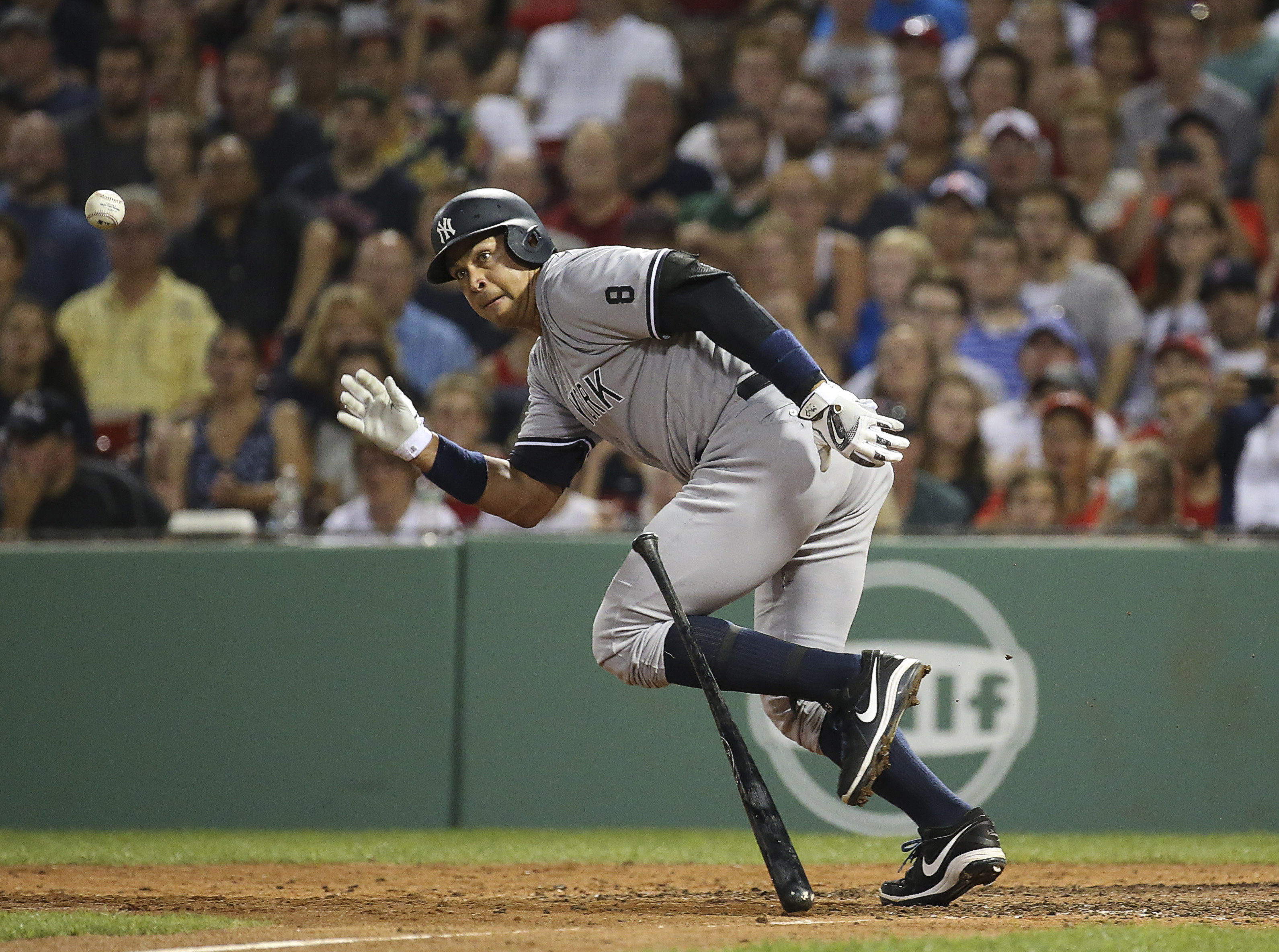Do you know how for the last few years a lot of Yankees fans—and even some commentators—have casually considered it a fait accompli that Bryce Harper, once he reaches free agency after the 2018 season? It all sort of makes sense. Harper grew up as a Yankee fan. He’s going to get a mega-contract that perhaps only a few teams are willing to give out. The Yankees have a lot of money coming off the past few years. Their current prospect crop should all hit by around then, but it’s likely they’ll want the one last piece to put them over the top. Harper is a Scott Boras client and therefore not particularly likely to extend early with Washington, though Stephen Strasburg shows that this isn’t a guarantee.
This same sort of attitude existed about Alex Rodriguez in the late-1990s about his free agency after the 2000 season—except it was about the Mets. A-Rod was a Mets fan from childhood. Back in the halcyon days before anyone but the New York financial scene had heard names like Bernie Madoff and Irving Picard, the Mets were one of baseball’s top spenders. Just two years before Rodriguez was to hit free agency, the Mets made Mike Piazza baseball’s highest paid player. The Mets ended 2000 by losing the World Series to the cross-town rival Yankees. Incumbent shortstop Rey Ordonez had missed most of the previous season with a broken arm, and would come back as a diminished player. His replacement, Mike Bordick, was a free agent the Mets would not re-sign. Alex Rodriguez and the Mets looked like the most perfect of fits.
What happened? Lots of tabloid ink was spilled sorting that out. The easiest answer is that Texas, led by spendthrift owner Tom Hicks, rushed in with a soon-to-be-infamous $252 million offer that blew away the field, including the Mets. Within three years, the Rangers would go to fairly extreme measures to dump what was by then perceived as an albatross contract. Yet, even with Rodriguez’s fairly precipitous decline, it’s almost stunningly obvious that over the ten years covered by that contract’s term, he was worth every penny of the deal and a lot more. From 2001 through 2010, A-Rod averaged 151 games a season, hit .299/.394/.577, won three AL MVPs, made nine All-Star Games, and even won two Gold Gloves at shortstop before sliding over to third base.
The Mets, never content to just be outbid, proceeded to lavish the media with stories of perks Rodriguez and Boras demanded. Things like marketing agreements, use of jets, and luxury boxes are common in large-scale free agent deals. They don’t cost the team all that much, and they’re nice for the player and his family. But to the common fan, the one saving up a couple hundred bucks to take their family to a game on the weekend, it’s all a bit outrageous. Usually this stuff goes unreported except on places like Cot’s Contracts, or maybe as a minor story when full contract details come out, but everything in the Alex Rodriguez Show is magnified.
Rodriguez, for his part, would go on to become a significant Met killer over the course of his Yankees career. Over 262 plate appearances against the orange and blue, he hit .308/.397/.518. He’d also start the most infamous play in Met Subway Series history, popping the ball up to Luis Castillo in a 2009 tilt to seemingly end what would become one of the worst losses in Mets history. He’d ultimately regret signing with the Rangers over the Mets, after his public image and relationship with Boras had both soured.
It’s easy to play “what if” games with Rodriguez and the Mets. The Mets would only make the playoffs once during Rodriguez’s ten year deal, in 2006. But they were close and trying to contend for nearly that entire period, and he plausibly could have pushed them into the playoffs in 2001, 2005, 2007, and 2008. With four or five playoff appearances, the Mets very well could’ve won a World Series or two in that span. Kaz Matsui never becomes a Met, but given that the Mets did move Jose Reyes off short for Matsui, Reyes probably becomes a career second baseman in deference to Rodriguez. This largely makes Rodriguez a straight swap for the continuous pool of journeyman shortstops before Reyes’ arrival and second basemen after.
And then, of course, there’s the biggest “what if” of them all. Rodriguez claims that he started using performance-enhancing drugs in 2001 with the Rangers due to the clubhouse atmosphere and pressures of his huge deal. We have no way of knowing whether that’s true or not, but perhaps he never starts using—or at least never gets caught. In that universe, perhaps Rodriguez’s retirement is what it should be—a celebration of one of baseball’s 10 or so greatest players ever—instead of the conflicted spectacle that it’s become.
Photo Credit: Mark L. Baer-USA TODAY Sports
